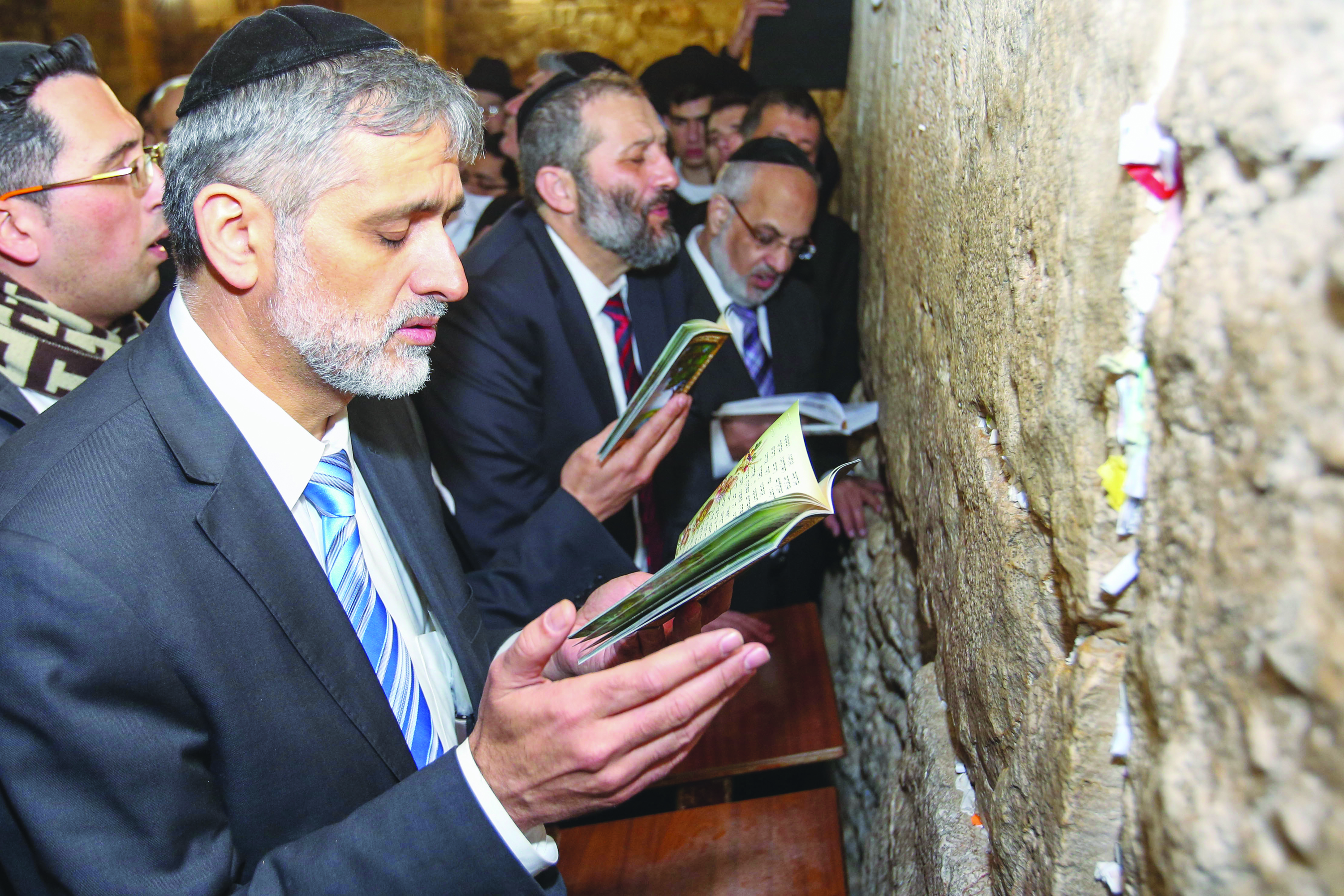Netanyahu Starts Building Coalition

Recovering from a stunning electoral turnabout, Israeli Prime Minister Binyamin Netanyahu was busy on Wednesday building a new government coalition, though it’s not the kind of construction work that could be called “shovel-ready.” It is likely to take much time and effort.
Netanyahu declared that the election proved “the Israeli public wants me to continue leading the country” — his 31 Knesset seats were almost as much as the second and third leading parties combined. But he had to qualify that statement by adding that he seeks to assemble “as broad a coalition as possible.” That’s due to the stubborn parliamentary fact that it takes a majority of 61 of the 120 Knesset seats to make a government.
With 99.8 percent of votes counted: Voter turnout was 66.6 percent. Likud-Beiteinu received 31 seats, Yesh Atid 19, Labor 15, Jewish Home 11, Shas 11, UTJ 7, Livni 76, Meretz 6, UAL-Taal 5, Hadash 4, Balad 3, and Kadima 2. The 19th Knesset was split down the middle, with the blocs of right-wing and center-left parties each getting 60 seats.

Consequently, Netanyahu was making overtures to likely coalition partners within hours of the closing of the polls on Tuesday night.
The first call was made to Yair Lapid, leader of his newly founded Yesh Atid, which became the second biggest party in the country overnight with 19 new Knesset members.
Acquiring Lapid for the next government will not come cheaply. As he told The Associated Press in an interview last week, he will not sell out for a minister’s privileges and perks. He says he will insist on his party’s agenda: a return to peace talks with the Palestinians, drafting yeshivah and kollel students, economic policies that will ease the burden on the middle class, and reforming the electoral process to eliminate the influence of small, sectoral parties.


Yaakov Periry, a senior member of Yesh Atid, said Wednesday that “we have red lines. We won’t cross those red lines, even if it will cost us sitting in the opposition.”
Netanyahu himself conceded to reporters that he will have to put the draft, cheaper housing and government reform at the top of the agenda.
But Yair Lapid was not the only Israeli party head to receive a post-midnight phone call from the prime minister on Tuesday night. The phones of Shas leaders Aryeh Deri and Eli Yishai and Rabbi Yaakov Litzman of United Torah Judaism also rang with the Prime Minister on the line.
If that was an indication that Netanyahu hopes to include the chareidi parties in his “broad coalition,” it was also an indication of the challenge he faces, since the military draft and electoral form — aimed in large part at reducing the power of the religious parties — is much more of a red line issue for them.
Writing in Hamodia (Hebrew edition), political correspondent M. Carmeli noted that “right after the election results were announced, Netanyahu’s people were speaking of a coalition of Yisrael Beiteinu, Yesh Atid, Jewish Home, and perhaps United Torah Judaism, without Shas. But the coalition puzzle will change its shape many times between now and the time a government is finally convened.”
However, Jewish Home leader Naftali Bennett had not yet heard from the prime minister as of Wednesday evening, according to a source close to Bennett, said The Jerusalem Post.
A decision to leave Bennett out in the cold could have its own price tag. A new survey by the Maagar Institute’ found that 73 percent of Likud-Beiteinu voters prefer that Naftali Bennett join the coalition, compared to 27 percent who favored Tzipi Livni.
Livni came in with only 6 seats, and made a short noncommittal statement to the media in which she declined to say whether she would agree to sit in a Netanyahu government.
Meanwhile, Labor party leader Shelly Yacimovich appealed publicly to Lapid on Wednesday not to join Netanyahu’s government, which she predicted would “shatter the middle class.” Yacimovich herself announced during the campaign that she was excluding Labor from another Netanyahu government.
“If [Lapid] joins an alternative coalition — I will assist him. If not, we will lead a fighting opposition that has never been seen before,” she said.
Yacimovich also expressed disappointment with the 15 seats her party won in the election and said she will work to form a “peace chasing” coalition without Netanyahu.
However, Yacimovich’s anti-Netanyahu agitation appeared unlikely to deter Lapid from dealing with the prime minister. Yesh Atid openly rejected Yacimovich’s campaign to block Netanyahu.
Lapid said on Wednesday that “we will not be part of an obstructionist bloc with the Hanin Zoabis,” referring to the dissident MK from the Arab-Israeli party, Balad, who became notorious for joining the Mavi Marmara ship that tried to break through the Israeli blockade of Gaza in 2009 with terrorists on board.
Housing Minister Ariel Attias (Shas) said Wednesday that his party would “sit with anyone” in a new government, though he also indicated that Shas would not come into the coalition at any price.
This article appeared in print on page 1 of edition of Hamodia.
To Read The Full Story
Are you already a subscriber?
Click "Sign In" to log in!

Become a Web Subscriber
Click “Subscribe” below to begin the process of becoming a new subscriber.

Become a Print + Web Subscriber
Click “Subscribe” below to begin the process of becoming a new subscriber.

Renew Print + Web Subscription
Click “Renew Subscription” below to begin the process of renewing your subscription.












